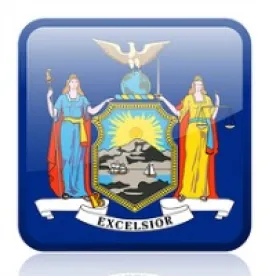Why This Matters
On August 12, 2019, New York Governor Cuomo signed into law legislation that greatly strengthens protections against sexual harassment. The bill, SB 6577, makes sweeping changes to current sexual harassment and discrimination laws. Most will take effect 60 days from the date the Governor signed the bill, or on October 11, 2019. New York State employers should work with employment counsel to alter their policies and practices to comply with these new requirements.
Background
SB 6577 includes several provisions directly affecting private employers, including:
-
It expands the definition of an “employer” in the New York State Human Rights Law (“NYSHRL”) to include all employers in the State, including the State and its political subdivisions, regardless of size. Additionally, it amends the definition of “private employer” to include any person, company, corporation, or labor organization or association, except the State or any subdivision or agency thereof.
-
It protects non-employees, such as independent contractors, vendors, and consultants, from all forms of unlawful discrimination (not only sexual harassment) where the employer knew or should have known the non-employee was subjected to unlawful discrimination in the workplace and failed to take immediate and appropriate corrective action.
-
The new law lowers the burden of proof for harassment claims. Any harassment based on a protected class, or for participating in protected activity, will be unlawful “regardless of whether such harassment would be considered severe or pervasive under precedent applied to harassment claims.” Unlawful harassment will include any activity that “subjects an individual to inferior terms, conditions or privileges of employment because of the individual’s membership in one or more of these protected categories.” Also, employees will no longer need to provide comparator evidence to prove a harassment claim.
-
It rejects the Faragher/Ellerth defense for harassment claims. This defense allows employers to avoid liability where the employee does not make a workplace complaint. The new law does, however, provide for an affirmative defense where the harassment complained of “does not rise above the level of what a reasonable victim of discrimination with the same protected characteristic would consider petty slights or trivial inconveniences.”
-
The law lengthens the statute of limitations to file a sexual harassment complaint with the New York State Division of Human Rights (the “NYSDHR”) from one year to three years.
-
It requires courts and the NYSDHR to award attorneys’ fees to all prevailing claimants or plaintiffs for employment discrimination claims and may award punitive damages in employment discrimination cases against private employers. The law only allows courts and the NYSDHR to award attorneys’ fees to a prevailing respondent or defendant if the claims brought against them were frivolous.
-
The new law prohibits mandatory arbitration clauses for all discrimination claims. This provision, however, is likely preempted by the federal law, namely the Federal Arbitration Act.
-
It prohibits non-disclosure agreements in any settlement agreement or other resolution for a claim of discrimination, unless: (1) it’s the complainant’s preference; (2) the agreement is provided in plain English and, if applicable, in the complainant’s primary language; (3) the complainant is given 21 days to consider the agreement; (4) if after 21 days, the complainant still prefers to enter into the agreement, such preference must be memorialized in an agreement signed by all parties; and (5) the complainant must be given seven days after execution of such agreement to revoke the agreement. Because this provision applies to settlement agreements or other resolutions of claims for discrimination, it seemingly would not apply to separation or severance agreements where the departing employee made no specific allegation of discrimination.
-
It invalidates any term or condition in a non-disclosure agreement if it prohibits the complainant from initiating or participating in an agency investigation or disclosing facts necessary to receive public benefits. It also invalidates non-disclosure clauses in employment agreements unless the clause notifies the employee that they are not prohibited from disclosure to law enforcement, the EEOC, the NYSDHR, any local commission on human rights, or their attorney. All terms and conditions in a non-disclosure agreement must be provided in writing to all parties, in plain English and, if applicable, the primary language of the complainant.
-
The new law requires employers to provide employees with “a notice containing [the] employer’s sexual harassment prevention policy and the information presented at such employer’s sexual harassment prevention training program” in English and in each employee’s primary language, both at the time of hire and during each annual sexual harassment prevention training.
The majority of these changes will take effect 60 days after the legislation is enacted, with the exception of the “employer” definition expansion, which will take effect after 180 days, and the extended statute of limitations, which will take effect after 1 year.





 />i
/>i

